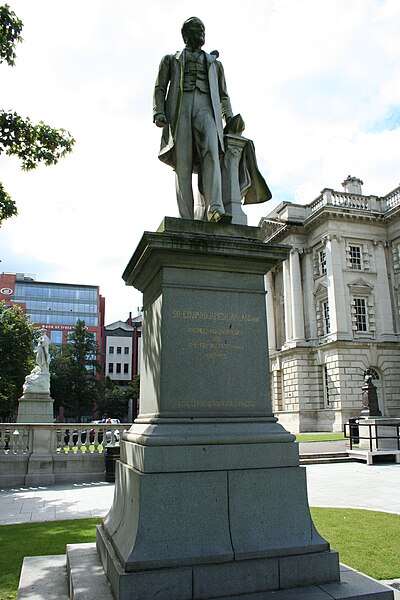Sir Edward James Harland, 1st Baronet, was an Ulster-based English shipbuilder and politician. Born in Scarborough in the North Riding of Yorkshire, he was educated at Edinburgh Academy. In 1846, aged 15, he took an apprenticeship at the engineering works of Robert Stephenson and Company in Newcastle upon Tyne. Afterwards he was employed in jobs in Glasgow and again in Newcastle, before moving to Belfast in 1854 to manage Robert Hickson's shipyard at Queen's Island. Four years later he bought the yard and renamed the business Edward James Harland and Company. In 1861 he formed a business partnership with Gustav Wilhelm Wolff, his former personal assistant, creating Harland and Wolff. Later, Harland recruited William James Pirrie as another partner. Edward Harland, Gustav Wolff and William James Pirrie maintained a successful business, receiving regular orders from the White Star Line, before Harland's retirement in 1889, leaving Wolff and Pirrie to manage the shipyard.

Portrait by Frank Holl (1884)
Statue of Sir Edward Harland in the grounds of City Hall, Belfast
Gustav Wilhelm Wolff was a German-born British shipbuilder and politician. Born in Hamburg, he moved to Liverpool in 1849 to live with his uncle, Gustav Christian Schwabe. After serving his apprenticeship in Manchester, Wolff was employed as a draughtsman in Hyde, Greater Manchester, before being employed by the shipbuilder Edward Harland in Belfast as his personal assistant. In 1861, Wolff became a partner at Harland's firm, forming Harland and Wolff. Outside shipbuilding, Wolff served as a Belfast Harbour Commissioner. He also founded the Belfast Ropeworks, served as Member of Parliament for Belfast East for 18 years and as a member of the Conservative and Unionist Party and Irish and Ulster Unionist parties.
Gustav Wilhelm Wolff



